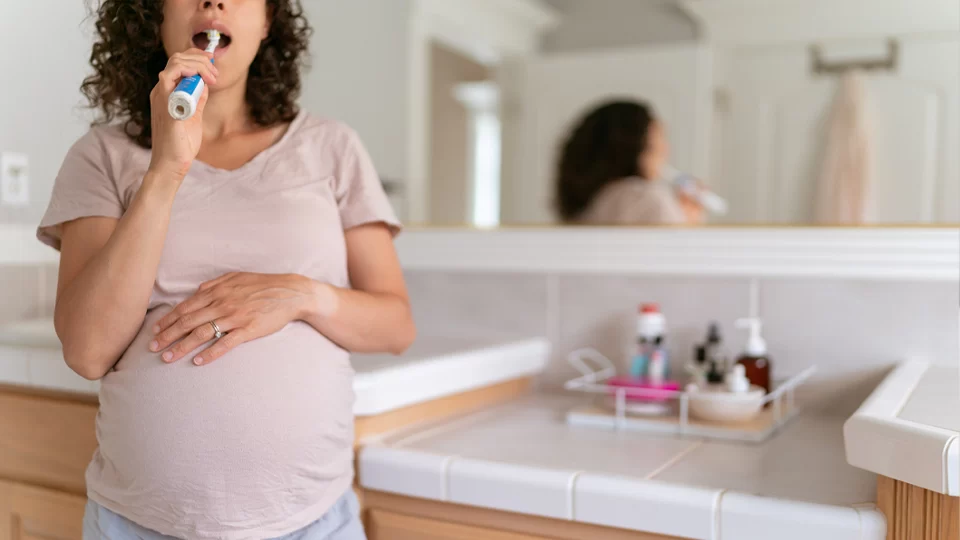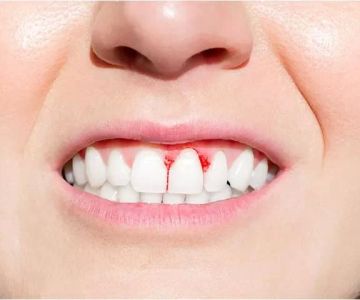
The Importance of Dental Care During Pregnancy
Pregnancy is a time of great change for a woman's body, and with these changes come a range of health considerations. While many expectant mothers focus on nutrition, exercise, and prenatal vitamins, one crucial aspect often overlooked is dental care. Dental health during pregnancy is essential not only for the mother’s well-being but also for the health of the developing baby. Understanding how pregnancy impacts oral health and how to maintain a proper dental routine can help ensure a healthy pregnancy and a healthy baby.
How Pregnancy Affects Oral Health
During pregnancy, hormonal changes significantly affect a woman’s oral health. Increased levels of progesterone and estrogen can lead to changes in the gums, teeth, and mouth. Many women experience swollen, red, and bleeding gums, a condition known as pregnancy gingivitis. This is caused by the heightened blood flow to the gums, making them more sensitive to plaque buildup.
Additionally, morning sickness, which affects many pregnant women, can lead to increased acid exposure in the mouth, especially if vomiting occurs frequently. The acid from the stomach can erode tooth enamel, leading to increased risk of cavities and tooth decay. Furthermore, cravings for sugary snacks and drinks can contribute to tooth decay if oral hygiene is not maintained.
Common Dental Issues During Pregnancy
While pregnancy can bring about a number of oral health changes, there are several common dental issues that pregnant women may face:
- Pregnancy Gingivitis: As mentioned, hormonal changes can cause the gums to become inflamed and bleed easily, especially when brushing or flossing. This condition is generally mild and can be managed with proper oral hygiene.
- Tooth Sensitivity: Changes in hormone levels can sometimes lead to tooth sensitivity. This is often aggravated by acidic foods or drinks that many pregnant women may crave.
- Morning Sickness: Frequent vomiting due to morning sickness can expose teeth to stomach acids, which can wear down tooth enamel. This increases the risk of cavities and tooth decay.
- Dental Cavities: Increased cravings for sugary foods and beverages during pregnancy can contribute to the development of cavities if proper oral hygiene is not followed.
- Pregnancy Tumors: These are non-cancerous growths that can appear on the gums. Though they sound frightening, pregnancy tumors are typically harmless and will usually disappear after delivery.
Why Dental Care During Pregnancy is Vital for Both Mom and Baby
Dental care during pregnancy is crucial not only to maintain the health of the mother’s teeth and gums but also to protect the developing baby. Research has shown that poor oral health during pregnancy can lead to serious complications, including preterm birth and low birth weight. Gum disease, particularly if left untreated, can contribute to inflammation in the body, which has been linked to these complications.
In addition to potential pregnancy complications, maternal dental health is also tied to the baby’s health. Studies have found that the bacteria in the mother’s mouth can be transferred to the baby, which can increase the risk of dental problems in early childhood. This highlights the importance of maintaining good oral hygiene not only for the mother but also to ensure the baby’s future oral health.
Maintaining Good Oral Hygiene During Pregnancy
It’s important for pregnant women to continue their oral hygiene routine to prevent dental problems during this crucial time. Here are some tips for maintaining good oral health during pregnancy:
- Brush Twice a Day: Make sure to brush your teeth at least twice a day with fluoride toothpaste. This helps remove plaque and bacteria from the mouth, which can prevent tooth decay and gum disease.
- Floss Daily: Flossing removes plaque and food particles from between the teeth and along the gumline, where a toothbrush can’t reach. This is especially important for preventing pregnancy gingivitis.
- Rinse After Vomiting: If you experience morning sickness and vomit frequently, it’s important to rinse your mouth with water or a fluoride mouthwash afterward. Avoid brushing your teeth immediately after vomiting, as the acid can weaken tooth enamel. Wait at least 30 minutes before brushing.
- Stay Hydrated: Drink plenty of water throughout the day to help maintain saliva production, which naturally helps protect teeth and gums. This also helps combat dry mouth, a common symptom during pregnancy.
- Limit Sugary Foods and Drinks: Cravings for sugary snacks and drinks can increase the risk of cavities. Try to limit your intake of sugary foods, and if you do indulge, brush your teeth afterward.
- Visit the Dentist Regularly: Regular dental check-ups are essential during pregnancy. Make sure to visit your dentist for a professional cleaning and check-up to ensure your oral health is on track. If you have any concerns or notice symptoms like swollen gums or tooth pain, don’t hesitate to contact your dentist.
When to See a Dentist During Pregnancy
It is safe to visit the dentist during pregnancy, and in fact, it’s highly recommended to maintain regular dental visits throughout this time. Ideally, dental appointments should be scheduled during the second trimester, as this is typically the most comfortable period of pregnancy. However, dental care can be received at any stage of pregnancy, as long as the dentist is informed about the pregnancy.
If you experience any unusual symptoms such as persistent tooth pain, gum bleeding, or swelling, it’s essential to see your dentist immediately. These could be signs of an underlying issue that requires professional treatment. It’s also important to discuss any necessary dental treatments with your dentist to ensure they are safe during pregnancy.
Myths and Misconceptions About Dental Care During Pregnancy
There are several myths and misconceptions surrounding dental care during pregnancy that can deter women from seeking treatment. Some believe that dental x-rays or dental procedures are harmful to the baby, but modern dental practices use safe techniques that are generally considered safe during pregnancy. It’s always best to inform your dentist about your pregnancy, but most dental work can be done safely, especially with proper precautions.
Another misconception is that pregnancy causes teeth to become loose or fall out. While hormonal changes can affect gum health, this does not mean that teeth will automatically loosen or fall out. With proper dental care, most women can avoid these issues altogether.







 Westgate Dental Arts
Westgate Dental Arts Coventry Family Dental
Coventry Family Dental Familia Dental
Familia Dental Dr. Daniel S. Fife, DDS
Dr. Daniel S. Fife, DDS Dentistry At Suburban Square: Michael I. Wollock, DMD
Dentistry At Suburban Square: Michael I. Wollock, DMD Comfort Care Dental
Comfort Care Dental The Importance of Oral Health Education During Pregnancy for a Healthy Pregnancy
The Importance of Oral Health Education During Pregnancy for a Healthy Pregnancy Why Skipping Dental Checkups Can Lead to Bigger Oral Health Problems
Why Skipping Dental Checkups Can Lead to Bigger Oral Health Problems Advantages of Porcelain Dental Restorations
Advantages of Porcelain Dental Restorations Best Tips for Brushing Your Teeth Properly for Healthy Gums: Essential Techniques for Oral Health
Best Tips for Brushing Your Teeth Properly for Healthy Gums: Essential Techniques for Oral Health How Can Diabetes Cause Tooth and Gum Problems? Preventing and Managing Oral Health Issues
How Can Diabetes Cause Tooth and Gum Problems? Preventing and Managing Oral Health Issues Healthy Habits for Promoting Good Oral Health and Hygiene: Tips for a Healthy Smile
Healthy Habits for Promoting Good Oral Health and Hygiene: Tips for a Healthy Smile